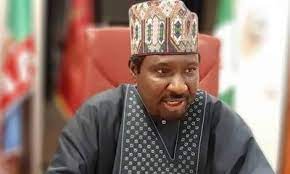As members of the House of Representatives return to the Green Chamber of the National Assembly from the prolonged summer recess, expectations are high especially as regards Electoral Act and change of leadership, among others.
JOSHUA EGBODO previews the session
Controversy over resumption date The House, which had embarked on a two-month long vacation in July, was initially billed to resume regular plenary on September 26, 2018.
This, however, was not to be, as the bureaucracy of the federal legislature, through the Clerk of the National Assembly (CNA), Alhaji Ataba Sani-Omolori, just days to the initial planned date, announced a shift in the resumption, with the new date fixed at October 9.
While members of the ruling All Progressives Congress (APC) loyal to President Muhammadu Buhari in the House, and the party itself were before the resumption adjustment, agitating for the reconvening of the House based on “pressing national issues” begging for urgent treatment, a statement announcing the new date by the CNA cited the primary elections of the various political parties across the country as reason for the shift.
However, many pundits were of the opinion that the call to see the House reconvened may be deeper than what is on the surface, beyond the need to attend to the so-called ‘pressing national issues’, but rather a plot to change the parliament’s leadership over concerns of confirmed switch of loyalty by the concerned leaders, There were allusions also credited to the loyalists that both presiding leaders of the two houses of the National Assembly were only working to protect their seats.
President Muhammadu Buhari had prior to the parliament’s recess sought budget approval, specifically for the execution of the 2019 general elections by the Independent National Electoral Commission (INEC), which both chambers could not do before the recess.
However, the joint committee of the Senate, and the House of Representatives on Electoral Matters were to shun the recess and sat to consider the budget.
The joint committee at the moment had a report, which in parliamentary practices is only expected to get the endorsement of the larger houses through votes on each clauses of the report at plenary when they resumed today.
Assent withheld While this lasts, President Buhari also communicated his decline to assent to a third amendment effort of the eight assembly of the federal parliament to the 2010 Electoral Act, sparking yet another debate on whether the February 2019 commencement date for the elections may still be feasible.
Buhari cited some “drafting errors” in the document for yet another of his veto.
With the fresh development, the joint electoral matters committee reconvened, and announced that it would be the fourth attempt at amending the Electoral Act by the running eighth assembly.
Lead chairman of the panel, Senator Suleiman Nazif, at the meeting, however, expressed the determination of the parliament to ensure “free, fair and credible elections” in 2019.
“This is to inform all distinguished senators and honourable members that resumption of plenary session earlier scheduled for Tuesday, 25th September has been postponed to Tuesday 9th October due to the activities of the primaries of the political parties.
“All distinguished senators and honourable members are expected to resume plenary session by 10 am on the 9th of October, please”, the tars statement by the CNA announcing the new date had read.
Now that the rescheduled date is finally here, it is of great concern to followers of the politicking within and between members of the ruling party and the main opposition on what could possibly happen on the floor of the House of Representatives in the coming days.
One of such issues is the case of balancing the numerical forces of political party membership, with who should serve as presiding officers of the House.
Marching constitutional provision with political expediency It is true though that by provisions of the Constitution of Nigeria and the rules of the House, the positions of Speaker and Deputy Speaker of the House are not political party affiliated seats, the practice over time however has been the party with majority number of members produce the presiding officers.
But as it is, Speaker of the House, Yakubu Dogara defected in the course of the recess, to the main opposition Peoples Democratic Party (PDP), with reports that he has won a return ticket on the platform of the party for his Dass/Bogoro/Tafawa Balewa Federal Constituency of Bauchi State in the coming elections.
The ruling APC has not hidden its feelings and desire to effect a change of leadership of the House, especially with the move of the Speaker, who had expressed anger that forces from both and within the national leadership of the party, and his state were bent on prematurely forcing him out of political relevance, to the main opposition PDP.
Will Gbajabiamila emerge? Should the APC attempt the alleged leadership change as the House resumes plenary, what has not been clear to many followers of the moves has been the fate of the Deputy Speaker, Yussuff Lasun, who in spite all his travails, including losing his gubernatorial bid for Osun State at the primary election on the platform of the APC, had continually expressed his desire to remain in the party.
Those behind such concerns were of the opinion that the forces within the party were more disposed to the emergence of incumbent Majority Leader, Femi Gbajabiamila, widely considered as a Bola Tinubu’s boy, as the Speaker.
Fate of INEC budget, Electoral Act It is also yet unclear, the fate of the INEC’s budget, which many lawmakers have described as a hurriedly designed proposal with the intent to blackmail the National Assembly into passing a document without properly scrutinizing the details.
Report of the joint committee can only be revived at plenary for consideration as the House begins regular plenary today.
On the Electoral Act amendment, many analysts have blamed the government of the day for what they termed as attempts at taking into retrogression; efforts at reforming the nation’s electoral process, especially that it has openly been repeatedly confirmed by the sitting President, that were it not the introduced reforms, he wouldn’t have won the election in 2015.
Such pundits have opined therefore that if the reforms in the new amendments are good enough to correct the ongoing electoral fraud which is painting the country black in the community of nations, the House and by extension, the National Assembly, should muster the courage to override the President’s veto.
More defections in the offing? As plenary resumes today, there may be a lot to contend with.
There have been reported plots by members to defect across parties, based on what have been linked to dissatisfactions in the recent concluded party primaries.
Though the figures are unclear as to how many members clinched return tickets on the platform of political parties that they came into the House, or other alternatives, the predictions are rife that the power balance in terms of numbers may not remain the same.
If the foregoing prevails, would any early move to alter the leadership positions in the House be wise enough on the part of the PAC? Would such moves sail through? Only the coming days will provide answers to these questions, and many more.



